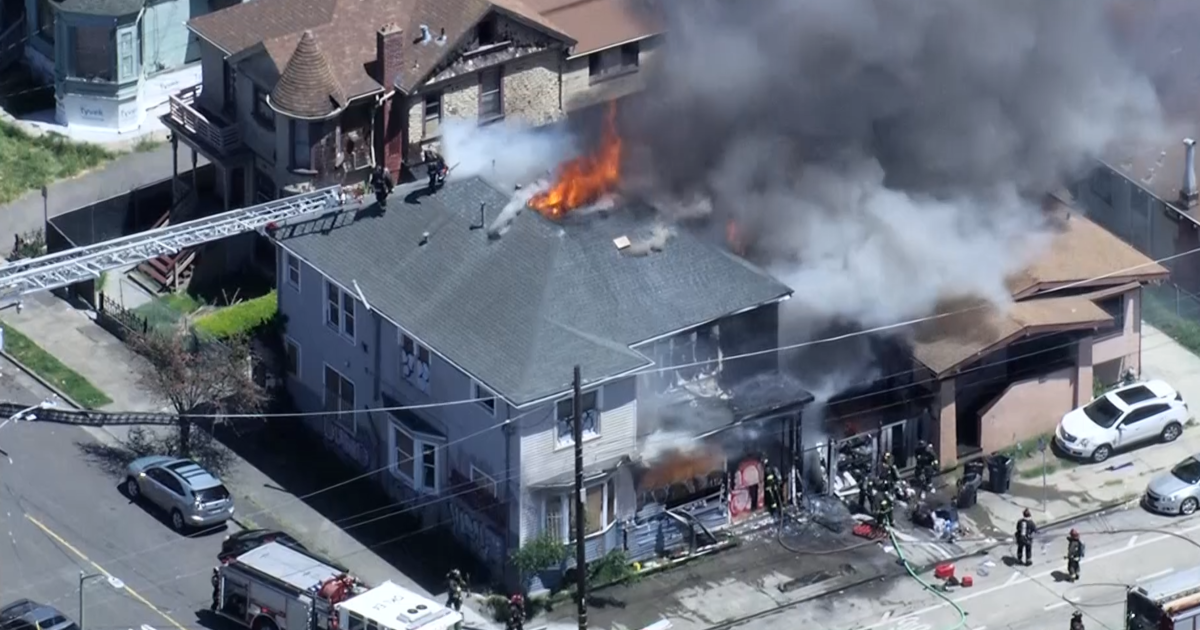Walnut Creek Family Says Settlement In Miles Hall Case To Further Foundation Work
WALNUT CREEK (CBS SF) -- The mother and father of Miles Hall, the 23-year-old man shot and killed in June 2019 by Walnut Creek police responding to a call for help from his mother in handling a mental health-related episode, said they plan to use money from a $4 million lawsuit settlement to fund the work of a foundation named for their son.
At a 40-minute news conference Monday morning in front of the Hall home -- near where Miles Hall was killed -- Scott and Taun Hall described the Miles Hall Foundation as working toward "systemic changes" to law enforcement's response to people experiencing mental health challenges.
"Yeah, we do feel that training for the police is needed," said Miles' father Scott, "because who knows when they'll show up and when they'll be there, whether called or not, but also a different alternative is needed as well."
ALSO READ:
- Police Call Fatal Officer-Involved Shooting Of Mentally Ill Walnut Creek Man 'Tragic'
- Body Camera Footage Shows Deadly Walnut Creek Officer-Involved Shooting
- Walnut Creek Police Facing Lawsuit Over Fatal Shooting Of Mentally Ill Man
"There is no justice for Miles until we get help for all," Taun Hall, Miles' mother, said Monday. "We have to create change."
Oakland-based civil rights attorney John Burris, representing the Hall family, said Monday the foundation is working to bring needed mental health response change far beyond Walnut Creek.
"We want this case to stand not just for Miles, but for other folks who are treated as criminals, shot during a mental episode," Burris said.
Mental health advocates say there needs to be someone else to call when a person is in the grips of a psychological crisis.
Gigi Crowder, Executive Director of the National Alliance of Mental Illness in Contra Costa County, said the killing of Miles has scared away some parents and loved ones from seeking help at all.
"Some are simply not calling because they're like, 'I've been there before. I've seen what happened with Miles. It gets too touchy, I'd rather not,'" Crowder told KPIX 5.
Crowder, along with Miles' family, is advocating the creation of a new resource, a trained, mental health crisis response team available countywide, 24 hours a day. And, they stress, it should be someone people can call instead of the police.
"Right, 'Do not call police in this situation, call this number.'" Crowder said. "Then the assessment takes place about what level of support does the individual need?"
Burris also said the Miles Hall case has been unusual not only in that it involved mental health response, but also in the extent to which the case has been kept steadily in the public eye, largely thanks to the efforts of the "Friends of Scott, Alexis and Taun Hall" group of family, friends and other supporters.
The Hall family's supporters have met a number of times with city officials over issues related to police reform, has organized several peaceful protests and has made it a point to speak at every City Council meeting since June 2019, at first in person and, since the advent of the COVID-19 pandemic, electronically via Zoom.
And Miles Hall's name has become one of those recited by those protesting or honoring young Black men and women killed by police.
The settlement agreement was first announced late Friday afternoon, putting an end to a federal lawsuit against the city by the Hall family filed in September 2019. The settlement was not an admission of liability or fault by any city employees.
The settlement came 15 months after the June 2, 2019 shooting death of Miles Hall by Walnut Creek police officers. Hall was having a mental health episode when Taun Hall, Miles' mother, called police for help; she had discussed her son's mental health situation with police before that day.
When officers arrived at the Halls' home, Miles Hall had a steel rod in his hands, variously described as a garden tool and as a pry bar, and wouldn't respond to police commands to drop it. Officers fired beanbag rounds at Miles Hall, to little effect. When Miles ran toward officers, two of them fired their service weapons at Hall, and he died later that day from those wounds.
Family members contend Miles Hall was trying to run past the police toward his house.
The federal lawsuit asserted that police didn't have to use lethal force on Miles, especially knowing he suffered from mental illness, and that officers didn't properly de-escalate the situation.
Taun Hall said Monday her family will always live with the pain of Miles' death. But Burris praised the work by the family and its supporters to turn that pain into meaningful change, which may soon include a countywide, 24-hour non-police mental health response team.
"There is a lot of positivity to come out of this case," Burris said.
That's what Scott Hall said Monday he wants the most.
"All we've cared about from the day Miles died is that we have a better system in place," he said.
© Copyright 2020 CBS Broadcasting Inc. and Bay City News Service. All Rights Reserved. This material may not be published, broadcast, rewritten or redistributed.



